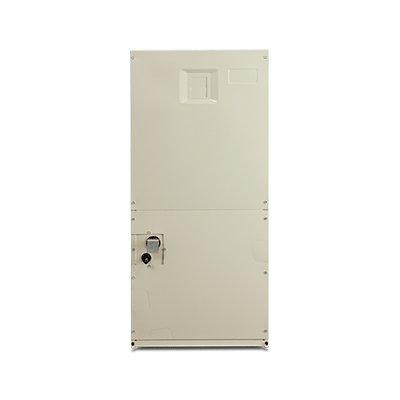Johnson Controls announces a new addition to its line of pressure independent valves that deliver stable temperature flow regardless of pressure fluctuations. The new compact VP140 Pressure Independent Control Valves (PICVs) provides a small footprint valve with robust performance. Its patented cartridge is designed for maximum resistance to dirty water, ensuring performance does not degrade, even in less than ideal water conditions.
Traditional systems are balanced at full-flow positions; however, under actual conditions, pressure dynamics often result in either too much or not enough flow through the coils, even though the valve position did not change. Compared to a pressure dependent valve, the automatic balancing action of the PICV regulates pressure to reduce temperature fluctuations caused by changing load conditions in other areas (zones) of the building. This reduces pumping requirements and lowers demand on the heating or cooling system.
PICV simplifies specification
The VP140 Series give facility managers an effective way to keep buildings operating at optimal conditions"
“We are pleased to offer our customers an additional solution that delivers another level of comfort, dependability and energy efficiency,” said Frank Stier, senior product manager, Johnson Controls. “The VP140 Series of Pressure Independent Control Valves give facility managers a fast and effective way to keep buildings operating at optimal conditions.”
Including a PICV also helps simplify specification. Valves are selected based on the design flow rate of the coil, eliminating the need for sizing based on Cv calculations. PICVs provide the appropriate flow given the load requirement of the coil, which is determined by the actuator position and not the pressure differential seen by the valve. The PICV also reduces installation and upfront equipment costs by enabling the right-sizing of equipment within the HVAC system.
The PICV combines the function of a control valve, pressure balancing valve and regulating valve into a single valve, eliminating the need for intensive system balancing, while providing the right flow, at the right time. As additional zones are added, the system can be commissioned zone-by-zone, reducing lifecycle costs by minimizing re-commissioning expense.





















